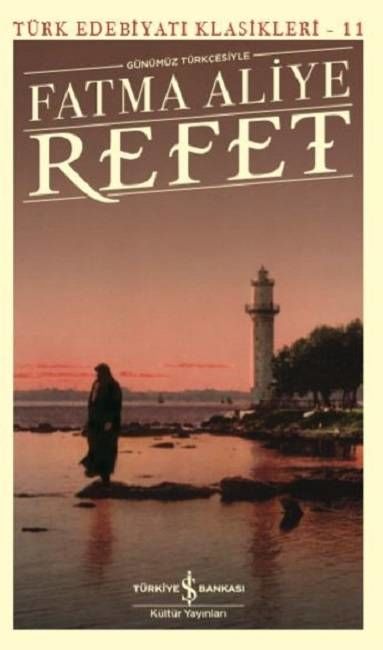
Refet in Today's Turkish-Turkish Literature Classics-11
Refet is the first female teacher protagonist in Turkish literature. From childhood to young womanhood, from the pen of Fatma Aliye, the first female novelist in Turkish, we read the story of a poor girl whose only capital is her mind and standing on her own feet by graduating from teacher training school. Refet explains different femininities, women's solidarity between classes and women's daily lives in a very simple way.
Fatma Aliye (Topuz) (1862- 1936) took her first step into the world of literature with the novel Meram by George Ohnet, which she translated under the signature "A Woman" in 1889. He wrote his second work, Dream and Truth, published in 1891, with Ahmet Mithat. Soon, the novels Muhadarat, Refet, Levayih-i Hayat, Udi and Enin were published under his own name. Refet and Udi describe the first female characters of Turkish literature who work hard and stand on their own feet. All the main characters in her novels are combative and strong women. His works attract attention abroad. The novel Udi was translated into French by Gustave Séon in 1899. Nisvan-ı İslam, which was written by European female travelers making home visits to change their wrong impressions about Ottoman women, was translated into French by Russian orientalists Olga de Lebedef and Nazimé Roukié in 1894 and into Arabic to be serialized in Beirut. Her biography and books are included in the catalog titled "The Woman's Library of The World's Fair" prepared for the 1893 Chicago Book Fair. Her work, Teracim-i Ahval-i Felasife, which consists of biographies of philosophers, and Tedkik-i Ecsam, a philosophical essay, are the first philosophical works written by a woman in Turkey.
Ahmet Cevdet Pasha and His Time, which was left unfinished after the Kosovo Victory and the Ankara Defeat, are the first historical works by a female writer. Her work Nâmdârân-ı Zenân-ı İslâmiyân, in which she wrote the biographies of women who lived in the early days of Islam, is an early example of the feminist historical consciousness that is just beginning to form today. Fatma Aliye, who has been an active writer of Hanımlara Mahsus Gazete, the longest-running women's publication, since the first day, proposes to interpret Islam by stripping it of its patriarchal interpretations in her articles and deals with polygamy, marriage and veiling with this approach. Fatma Aliye displayed great courage, stubbornness and resistance during her period, never giving up her pen, and supported the women writers who came after her with her writings.
(From the Promotional Bulletin)
Editor: Hacer Er
Dough Type: 2nd Dough
Number of Pages: 152
Size: 12.5 x 20.5
Number of Printings: 1st Edition
First Printing Year: 2018
| Publisher | : | İşbank Culture Publications |
| Number of pages | : | 152 |
| Publication Year | : | 2018 |
| ISBN | : | 9786052956618 |
| Translator | : | Ülker Yıldırımcan |
| The heart | : | Turkish |


